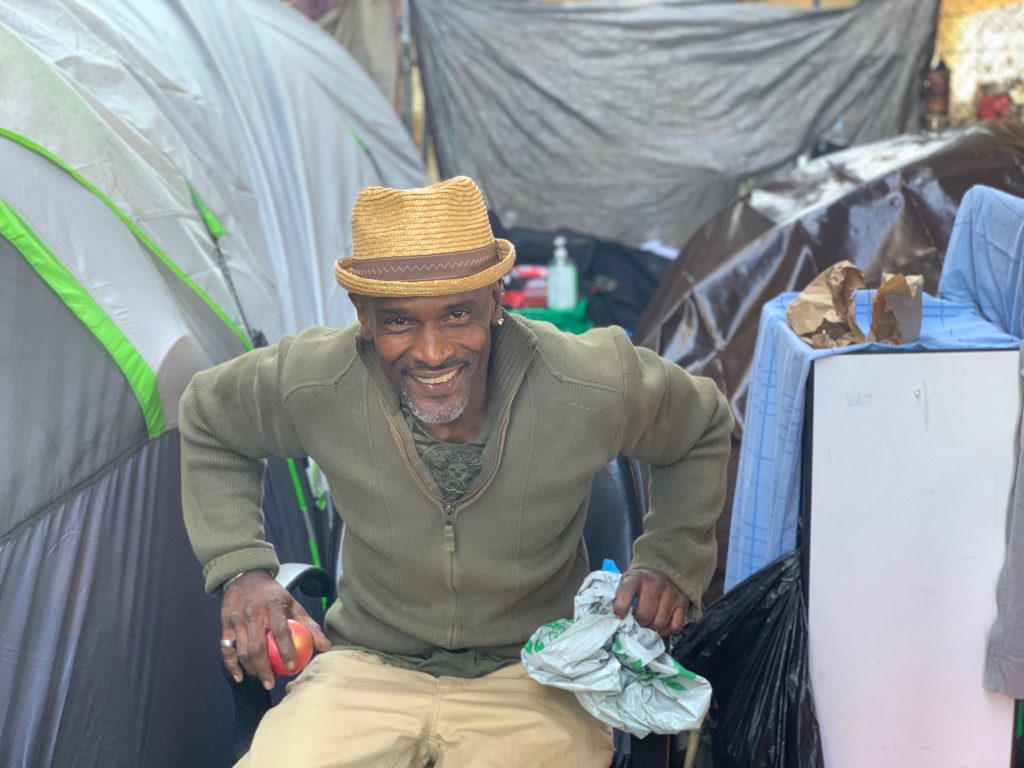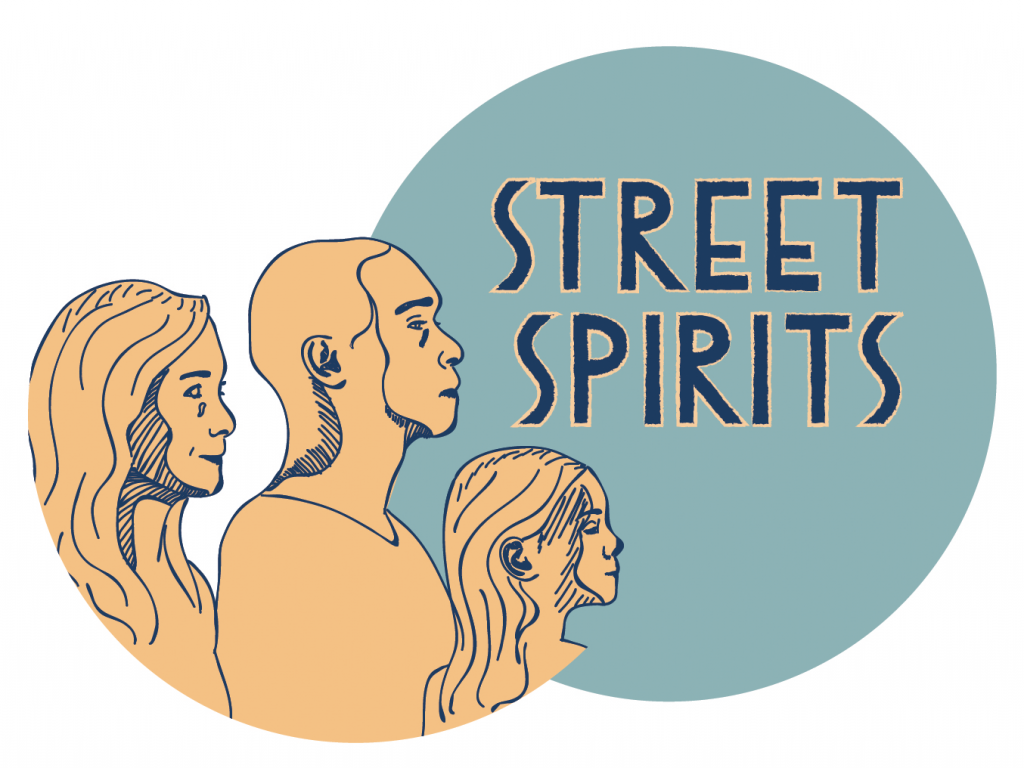

The first thing I notice about Geno is his impeccable sense of style: standing by the tent encampment under I-580 at Magnolia and 35th, he’s wearing khakis and a fitted olive-green sweater, boot-laced sneakers as clean as they come, and a spiffy straw fedora. He sports a large stud in one ear, and his beard is pristinely groomed. He looks like a suave sentinel, a GQ model moonlighting as—in his words—“the tent city’s point person.”
“My name’s Eugene,” he says, “but everyone calls me Geno the Barber.” Geno was born in San Francisco, and has lived all over the Bay Area throughout his 50 years.
We snake through the maze of tents together. Two pit bulls tussle playfully in a chain-link cage; they pause as Geno passes by, thumping their tails and looking at him expectantly. He smiles and shakes his head: “Man, I already walked you twice today!” he says. Though the pit bulls belong to another resident of the Magnolia Street encampment, the community shares in the responsibility of caring for them.
In a clearing amidst the tents, Geno has set up shop: he has a proper barber’s chair and a dresser beside it, where he keeps his tools. He graciously sits in his chair and lets me snap a photo.
As a child, Geno was always invited along on his grandfather’s weekly trips to the barbershop. “People from all walks of life would come to the barber shop—everybody needs to get their haircut,” Geno says. “I remember seeing that and being like, ‘Wow, he knows everybody! Everybody loves the barber!’”
Back in 2015, Geno was a barber himself. He had an apartment by McClymonds High School, in West Oakland, and a job at a barber shop. For him, landing the job was easy.
“I signed up as a barber’s apprentice, but I already knew how to do everything with styles, cuts, whatever,” he says. “I’ve been cutting hair since 1987! They were like, since we don’t have to teach you how to cut hair, we can use you at the shop. So they put me on. I worked there for about a year and a half.”
Then, as he puts it, Geno took a time-out. “Bad choices, bad decisions at the time. I didn’t cause anyone any harm, but,” he confesses, “there was some property damage.”
In California, a barber apprenticeship is a program that involves 3,200 hours of practice and 200 hours of classroom instruction. It takes place over two years, after which the apprentice must pass the California barber examination to obtain a license. But Geno never had the chance to complete the program.
“When the time-out was over, my apprenticeship license was expired,” Geno says. Without the required number of hours under his belt, he wasn’t eligible to take the barber examination, missing the chance to acquire the license he needed to find stable work. And without a job, Oakland’s increasingly high rent prices drove Geno to the street. “You have to strive every day…to have a roof over your head. I couldn’t make the money come together to keep an apartment.” After many years of ups and downs, Geno found himself homeless in 2015.
The three years he has spent living outside have been challenging for Geno. Reflecting on the hardships he has faced, he laughs, then stops. “Man, it’s not funny though. I laugh—but, well, it’s been tough out here.”
Geno was hospitalized for pneumonia in September. “You live in a tent, and then you have to cover your tent with a tarp to keep the cold air out and the warm air in, and it causes humidity. I mean it’s just tough—it’s just a bitch out here.”
Through difficult times, Geno’s passion for barbering has kept his spirits high. “I provide my services and I do things for people from the heart,” he says. “The passion is, I love to make people look good; I love to make people feel good. It makes the world a better place. You look good, you feel good, you might go on to do something good. That’s my contribution to my community.”
Geno pauses for a moment. He looks me in the eye, his expression determined and serious. “We’re not bad people, you know,” Geno says. “I was raised with good manners, principles, and morals. I try to stay balanced with my creator and the things that are going on around me. We’re good people—it’s in our spirits.”
Street Spirits is a feature in which someone who lives on the street tells us their story.
Julia Irwin is a writer, a recent UC Berkeley graduate, and a soon-to-be law school student.
